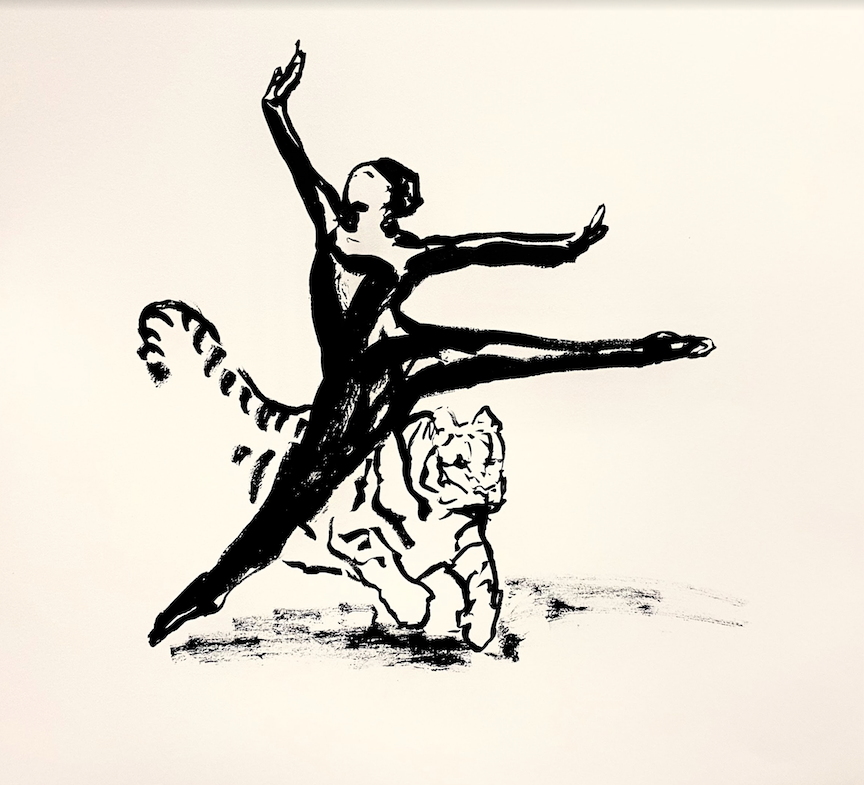Why I dance
October 15, 2021
 This
piece represents the opinion of the author
.
This
piece represents the opinion of the author
.
 Kyra Tan
Kyra TanTo me, the hardest part about dancing has been trying to find my purpose, my why: figuring out how to find meaning in my movements beyond how they feel on my muscles or how they look in the mirror.
My whole life, my interests have been hard to pin down: dance, writing, babysitting, talking. While I have never been able to narrow down my list of interests and passions, I have recently realized the common thread between them all, the why for me: storytelling. Whether it be in a research paper, an article for the Orient or a funny story I make up to tell kids that I’m babysitting, I have always loved storytelling. My favorite storytelling medium, or language really, is dance. In my experience, dance is a language capable of reaching more people and evoking more emotions—on both the end of the dancer and the audience—than any other.
When I was little, my dance teacher asked us a startling question, “Why do we dance?” The question was so simple it stopped me in my tracks. Because it’s fun? Because it feels good? Because what else would I do? None of these answers felt sufficient. “To perform,” my teacher finally said, interrupting my train of uncertain thought. While there is definitely room to dispute whether you need to create to perform for an audience to be an artist, part of this anecdote still rings very true to me—I dance for others as much as I do for myself. I dance for the feeling you get when you make eye contact with an audience member who is looking at you, who is seeing your art, who is receiving your story. I dance to articulate the things I can’t in English, on paper or in any traditionally academic class. I dance to feel like me and to share with others who that “me” is, even when I myself am unsure.
Last year, everyone lost a lot. I lost dance. I lost my outlet for storytelling. I still did it—I holed up in my Chamberlain Hall single teaching Zoom lessons to kids in random corners of New England, I Zoomed into club meetings where everyone was trying so hard to fit movement into their confining spaces—but my spacious single became a suffocating cell when it came time to dance. The walls became barricades, barring me from the one thing that would make me feel free, that would make me feel happy, that would make me feel me.
This past summer I worked at a farm as a “nature and farm educator,” but really it just meant hanging out with amazing five and six-year-olds and answering my favorite question ever: can you tell us a story?! I told all kinds of stories this summer: about Muffina and Muffino and their journey from Doughnut Mountain to Muffin Land, about a group of campers who went to the moon to eat ice cream and fight off evil monsters, about Finley the Night Tiger and all of his magical powers, about portals to unknown worlds and the real worlds around us. Whenever I was telling a story, I felt more entranced than my campers. The thrill was amazing, comparable to dancing down a huge stage to your favorite song.
I barely danced last summer but I might as well have; I moved my arms a lot during the stories, and so did my characters. More than the movement though, I told stories, spun them from thin air in front of 20 wide-eyed campers. This summer was a reassurance for me: you can be injured or without studio access, you can be in situations where you can’t dance, but you can always tell stories. And there is always a part two and a “to be continued” in all great stories.
Juliana Vandermark is a member of the Class of 2024.

Comments
Before submitting a comment, please review our comment policy. Some key points from the policy: